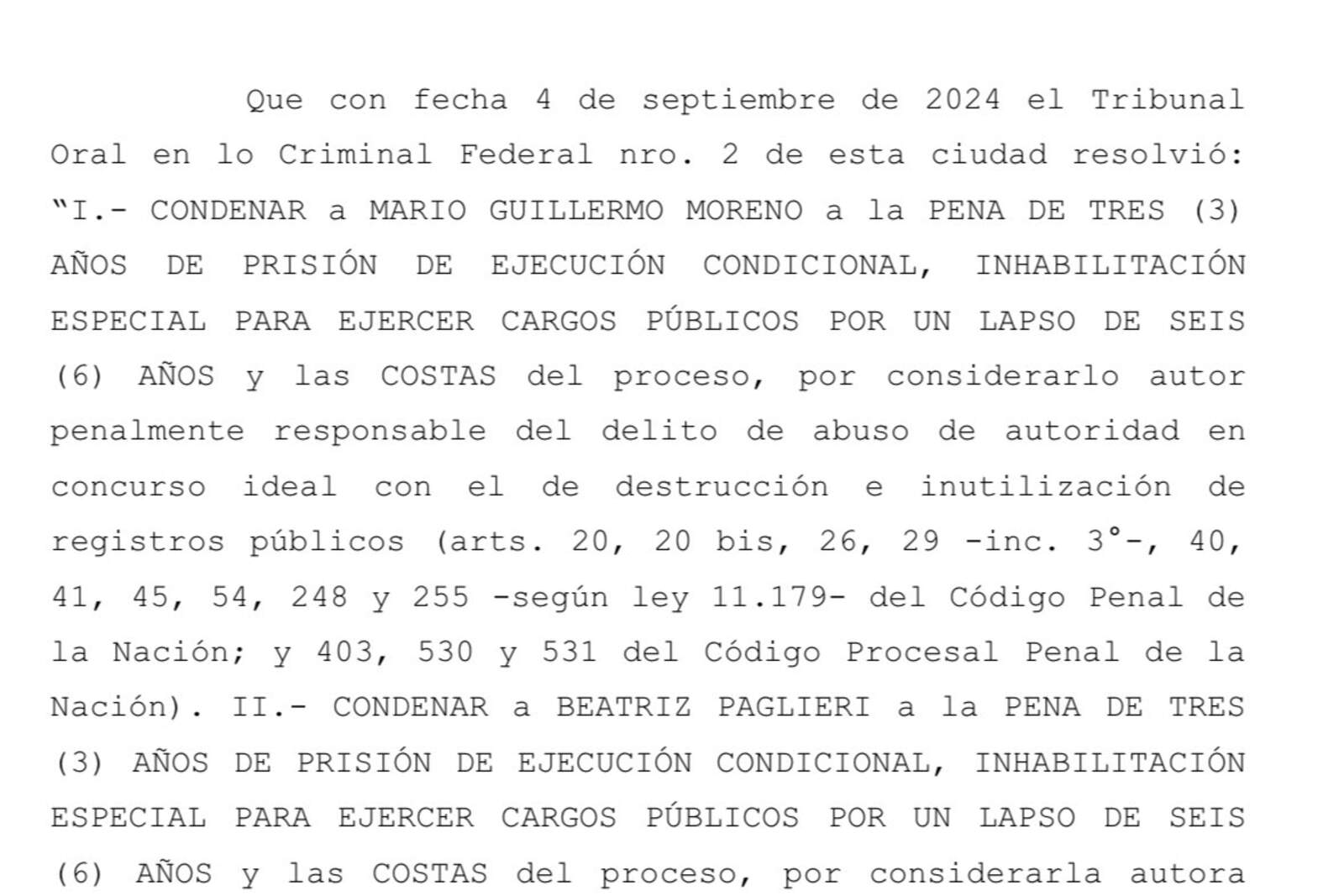The Chamber II of the Federal Criminal Cassation Court rejected an appeal filed by Guillermo Moreno, former Secretary of Domestic Trade of Argentina, and confirmed his three-year prison sentence for the crime of abuse of authority.
The decision, which also includes a six-year disqualification from holding public office, marks a new chapter in the judicial history of the former Kirchnerist official, whose tenure from 2006 to 2013 was marked by multiple irregularities.
Moreno was accused of abuse of authority in a case related to the manipulation of data from the National Institute of Statistics and Censuses (INDEC) during his administration. According to the investigation, between 2006 and 2007, Moreno allegedly exerted undue pressure on agency officials to alter economic indices, particularly those related to inflation.
These maneuvers sought to distort official statistical information, affecting the transparency and reliability of public data. Additionally, he was accused of intervening in the destruction of public records, which aggravated the charges against him.








